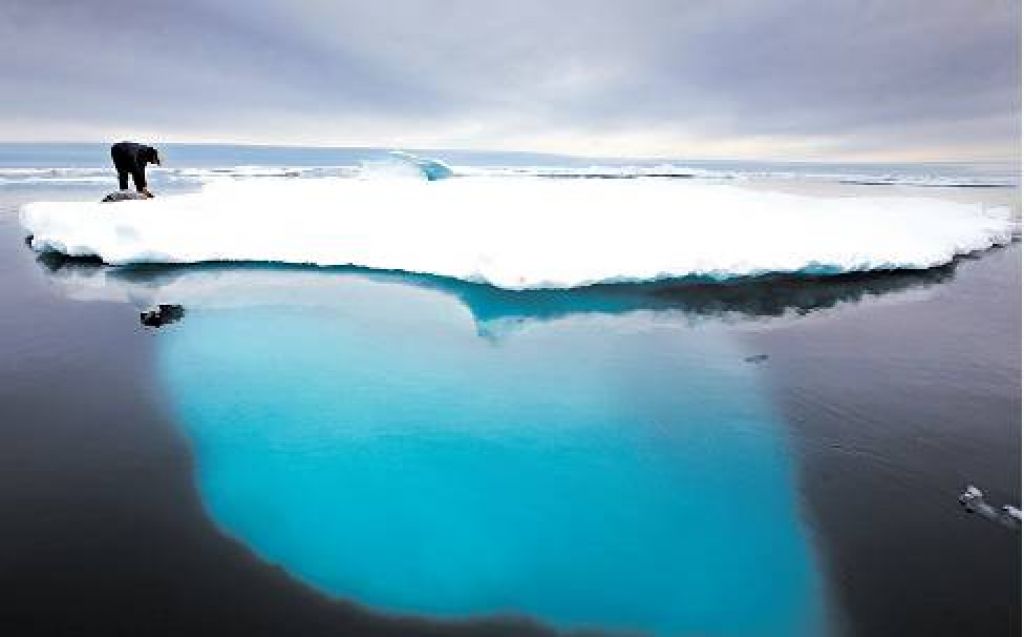In 2008, both the Democratic and Republican candidates for president, Barack Obama and John McCain, warned about man-made global warming and supported legislation to curb emissions. After he was elected, President Obama promised "a new chapter in America's leadership on climate change," and arrived cavalry-like at the 2009 United Nations Climate Conference in Copenhagen to broker a global pact.
But two years later, now that nearly every other nation accepts climate change as a pressing problem, America has turned agnostic on the issue.
The United States is the "one significant outlier" on responding to climate change, according to a global research report produced by HSBC, the London-based bank.
Meanwhile, Australia's House of Representatives passed a carbon tax in early October. Europe's carbon emissions trading system continues its yearly expansion. In 2010, India passed a carbon tax on coal. Even China's newest five-year plan contains a pilot cap-and-trade system, under which polluters pay for excess pollution.
John Ashton, Britain's special representative for climate change, said that "in the U.K., in Europe, in most places I travel to" - but not in the United States - "the starting point for conversation is that this is real, there are clear and present dangers, so let's get a move on and respond."
But in the United States, after watching the Republican candidates express skepticism about global warming in early September, former President Bill Clinton put it bluntly, "I mean, it makes us - we look l ike a joke, right?"
But it is not only the Republicans. President Obama now talks about "green jobs" mostly as a strategy for improving the economy, not the planet. He did not mention climate in his last State of the Union address. Meanwhile, his administration is fighting to exempt United States airlines from Europe's new plan to charge them for CO2 emissions. It also seems poised to approve a nearly 3,200-kilometer-long pipeline that will carry a kind of oil. Extracting it will put high levels of emissions into the atmosphere.
"In Washington, ‘climate change' has become a lightning rod, it's a four-letter word," said Andrew J. Hoffman, director of the University of Michigan's Erb Institute for Sustainable Development.
Americans - who produce twice the emissions per capita that Europeans do - are in many ways programmed to resist. They prefer bigger cars and bigger homes. They tend to distrust the kind of sweeping government intervention required to confront rising greenhouse gas emissions.
The number of Americans who believe the earth is warming dropped to 59 percent last year from 79 percent in 2006, according to polling by the Pew Research Group.
"Climate change presents numerous ideological challenges to our culture and our beliefs," Professor Hoffman says. There are, of course, other factors that hardened resistance: America's fossil-fuel industry; a cold American winter in 2010 that made global warming seem less imminent; and a recession that made taxes on energy harder to talk about, and job creation a more pressing issue.
Elsewhere in the world, conservatives, rather than posing an obstacle, are directing aggressive climate policies. Before becoming the European Union's commissioner for climate action, Connie Hedegaard was a wellknown Conservative politician in her native Denmark. In Britain, a coalition Conservative government is now championing a Green Deal.
In the United States, the right wing of the Republican Party has turned skepticism about global warming into a requirement for electability, forming an unlikely triad with antiabortion and gun-rights beliefs.
Meanwhile, in the developing world, emerging economies like India and China are pursuing aggressive climate policies. Buffeted by two years of treacherous weather that they are less able to handle than richer nations - from floods in India to water shortages in China - developing countries are feeling vulnerable.
Scientific advisers to Mr. Obama say he and his administrat ion remain committed to confronting climate change and global warming. But Robert E. O'Connor, program director for decision, risk and management sciences at the National Science Foundation in Washington, said a bolder leader would emphasize real risks that, apparently, now feel distant to many Americans. "If it's such an important issue, why isn't he talking about it?"
 Tiskane izdaje
Tiskane izdaje























